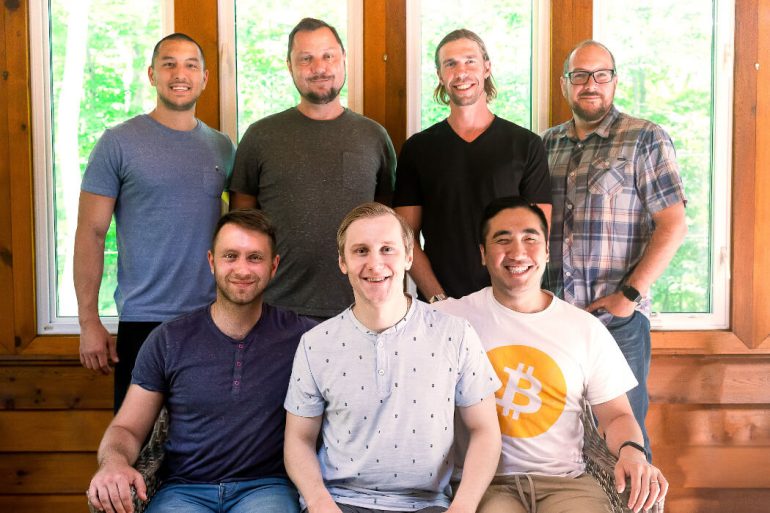Toronto-based crypto custodian Balance has completed a Systems and Organization Controls (SOC) 2 Type I audit with the help of independent auditor Dansa D’Arata Soucia LLP.
Balance’s CEO, George Bordianu, told BetaKit that SOC 2 compliance “further assures prospective clients that typical concerns they might have with respect to security, availability, processing integrity, privacy, and confidentiality are addressed.”
According to a recent Deloitte report, SOC 2 compliance has become an “industry benchmark” in the crypto space.
The startup claims that it is now the only Canadian digital asset custodian to achieve SOC 2 compliance for both its cold (offline) and warm (online) crypto storage systems. Balance is currently in the process of completing its SOC 2 Type II report, which it hopes to obtain by the end of the year.
However, Balance is not the only crypto custodian to seek SOC compliance as a means of establishing customer confidence amid a sector rife with security breaches and hacks.
According to a Deloitte report from earlier this year, SOC 2 compliance has become an “industry benchmark” in the crypto space over the past two years. Like Balance, major international crypto players like Gemini and Coinbase have also completed SOC audits.
Bordianu described the move as “an important step for us on our journey toward becoming the top qualified Canadian custodian for digital assets.” The audit enables Balance to serve entities and individuals registered under national instrument 31-103, ranging from investment dealers, to mutual fund dealers, and portfolio and investment fund managers.
Founded in the summer of 2017, Balance first introduced its custody services in a closed pilot during the following year ahead of its public launch in 2019. Today, Bordianu claims Balance is the oldest and largest Canadian digital asset custodian. Balance surpassed $2.5 billion in assets under custody ahead of recent market pullback, and is now sitting at over $750 million.
RELATED: Tetra Trust to become Canada’s first qualified crypto custodian, raises funding from Coinbase, Mogo
The startup stores crypto assets for a list of clients that includes crypto exchanges, OTC and prop trading desks, neobanks, ATM networks, private funds, market makers, liquidity providers, foundational treasuries across Canada, some US states, the British Virgin Islands, and the Cayman Islands.
Balance’s chief sales officer, Dustin Plett, described crypto custody as “the foundational layer” of the crypto ecosystem. “It’s a part of the ecosystem that doesn’t get much attention because it’s base layer, far removed from the glittery retail-facing businesses,” he told BetaKit. “Until Canada has a qualified custodian, all this talk about Canada’s burgeoning crypto/web3/digital asset ecosystem is just lip service.”
Balance wants to compete with established crypto giants like Coinbase and Gemini. In Canada, Balance’s homegrown competitors include Calgary’s Tetra Trust, Ottawa and Calgary-based Brane Capital, and Knox Custody, which recently agreed to sell some parts of its business to Tetra Trust.
In 2020, Montréal’s Knox Custody claimed that it was the first Canadian crypto asset custodian to achieve SOC 2 compliance, after completing its SOC 2 Type II attestation. Knox’s audit covers only one cryptocurrency in Bitcoin.
According to Bordianu, while Balance has only completed a SOC 2 Type I report, its scope is broader than Knox Custody’s given that its audit encompasses 11 native blockchain networks, including Bitcoin, and over half a dozen Ethereum-based tokens for both offline and online infrastructure.
Tetra Trust—whose backers include Coinbase, Mogo, and Coinsquare—claimed it became “Canada’s first qualified custodian” of cryptocurrencies like Bitcoin and Ether last July, after nabbing a certificate of registration from the Government of Alberta.
But according to Bordianu, while Tetra Trust has registered a provincial trust in Alberta, this is “a necessary but not sufficient step to operate and offer crypto custody services in Ontario,” where he says the majority of the market opportunity for digital asset custody in Canada currently resides. To serve Ontario, Tetra Trust needs a Financial Services Commission of Ontario (FSCO)-registered federal trust, which requires approval from the Office of the Superintendent of Financial Institutions (OSFI), says Bordianu.
Like Balance, major international crypto players like Gemini and Coinbase have also completed SOC audits.
To date, Balance has raised a total of $1.75 million USD in convertible note and SAFE venture funding from a group that includes Techstars (Balance graduated Techstars Toronto’s accelerator program in 2019) and Bicameral Ventures.
In mid-2021, Bordianu said the company became cash-flow positive, repaid some of its debt, and has been operating as a lean and profitable business since then.
According to Bordianu, the crypto crash, which has seen around $2 trillion in value wiped out, has forced Balance to implement various cost reduction measures. Amid these conditions, Balance has reduced the size of its insurance policies, postponed or abandoned some R&D initiatives, and found more efficient ways to deploy its infrastructure.
While the company has “effectively” frozen hiring, it has not laid off any staff and doesn’t expect it will need to, and Bordianu is confident in Balance’s ability to navigate the crypto winter.
“Thankfully, we’ve built a strong balance sheet at the height of the crypto market and acted fast when the market turned,” said Bordianu.
Feature image courtesy Balance.


